|
Genres, Themes, Actors, and Directors:
- Black Comedy
- Dick Miller Films
- Flashback Films
- John Heard Films
- Living Nightmare
- Martin Scorsese Films
- New York City
- Rosanna Arquette Films
- Teri Garr Films
- Verna Bloom Films
Response to Peary’s Review:
Peary describes this unusual Martin Scorsese film as a “loopy paranoia-comedy”, full of so many “ridiculous and tragic” occurrences that it’s clearly meant to resemble a living nightmare akin to Alice’s “bumpy descent into Wonderland.” It’s chock-full of hilarious exchanges, memorable moments, and quirky characters — including Rosanna Arquette as Dunne’s suicidal date:
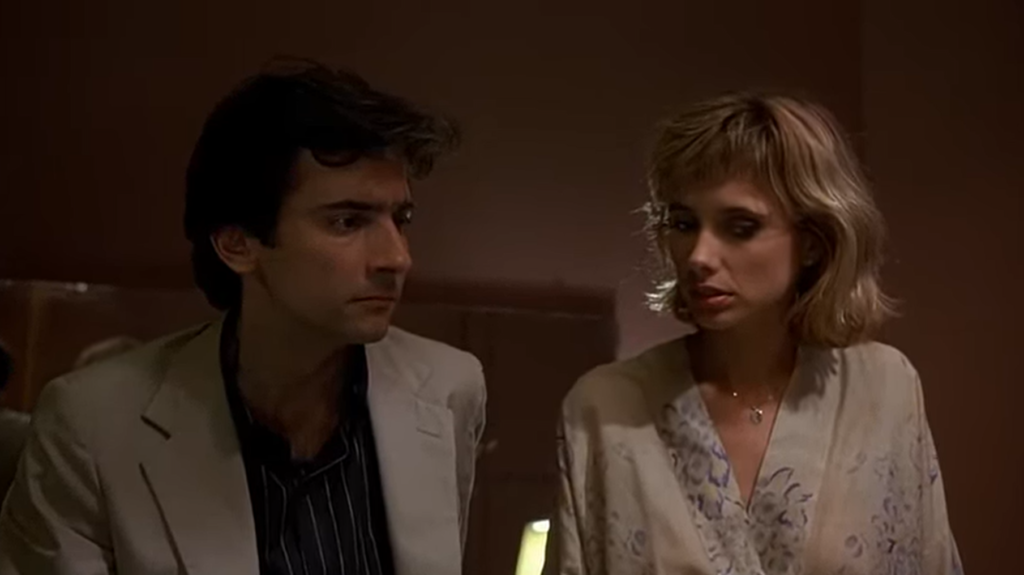
… Linda Fiorentino as Arquette’s kooky sculptress roommate (who makes plaster-of-paris bagels!):
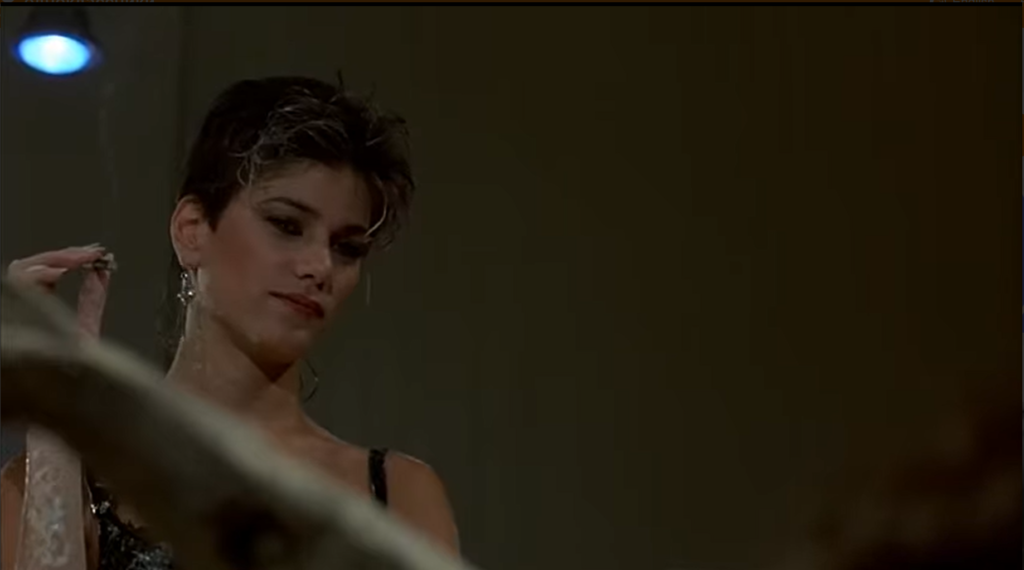
… Teri Garr as a baggage-laden blonde waitress:
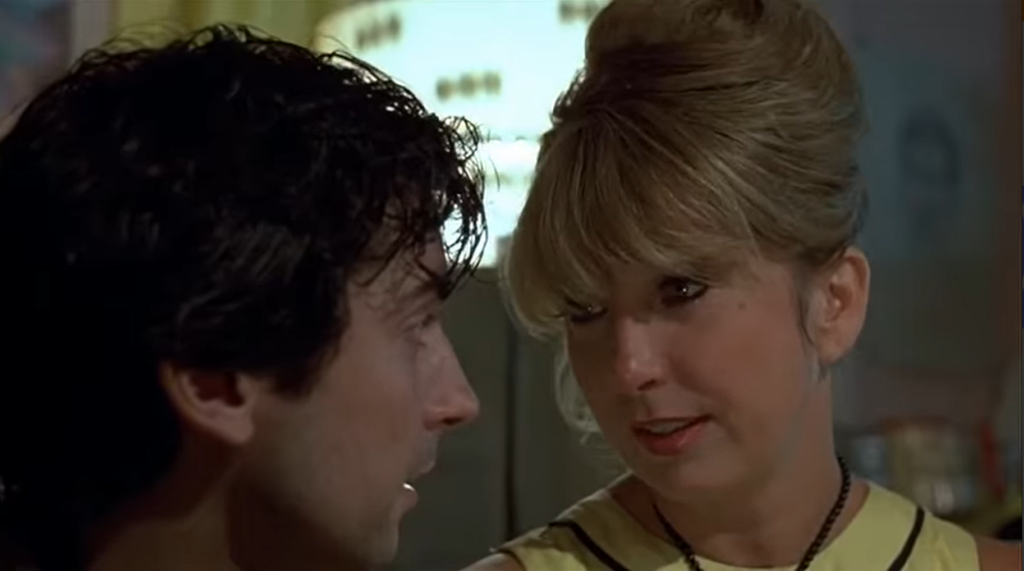
… John Heard as a menacing bartender:
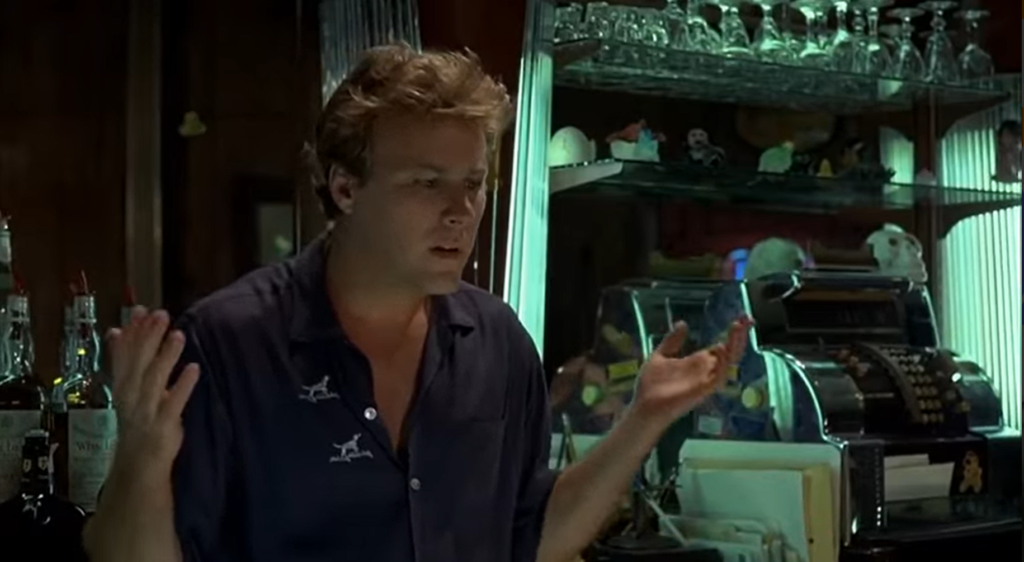
… Cheech and Chong as a pair of duplicitous thieves:
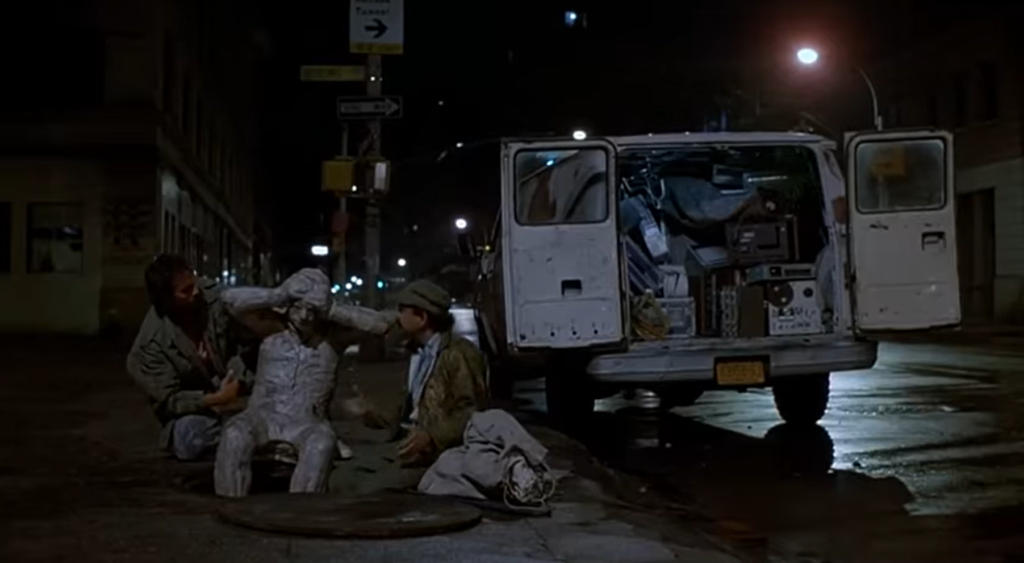
… and the always delightful Catherine O’Hara as a well-meaning but ultimately ruinous contact.
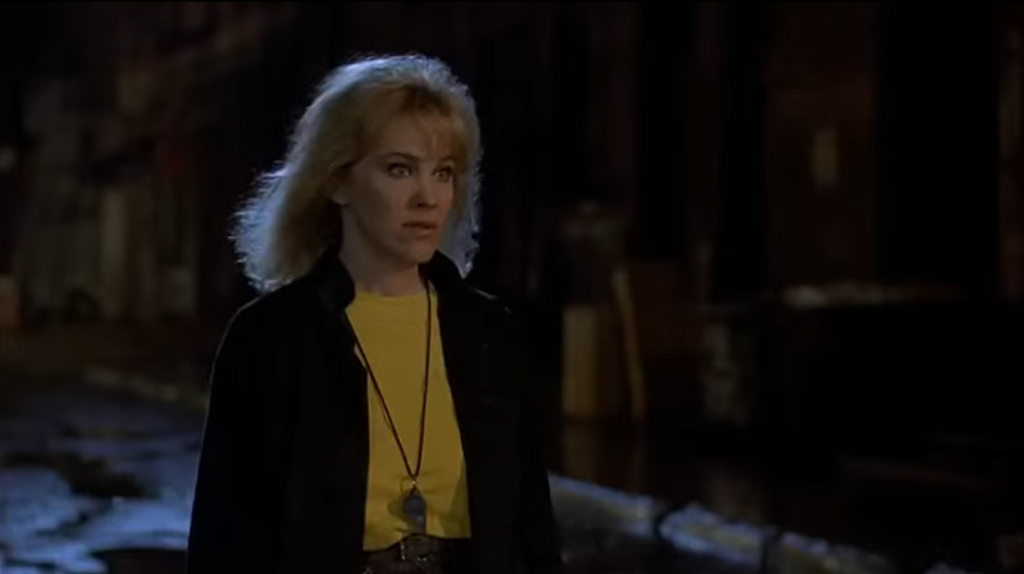
As Peary notes, Dunne’s character isn’t an overly sympathetic protagonist — indeed, “he’s kind of a worm” — but “we can [nonetheless] identify with his plight” given that he’s an “Everyman, with many of our less noble qualities.”
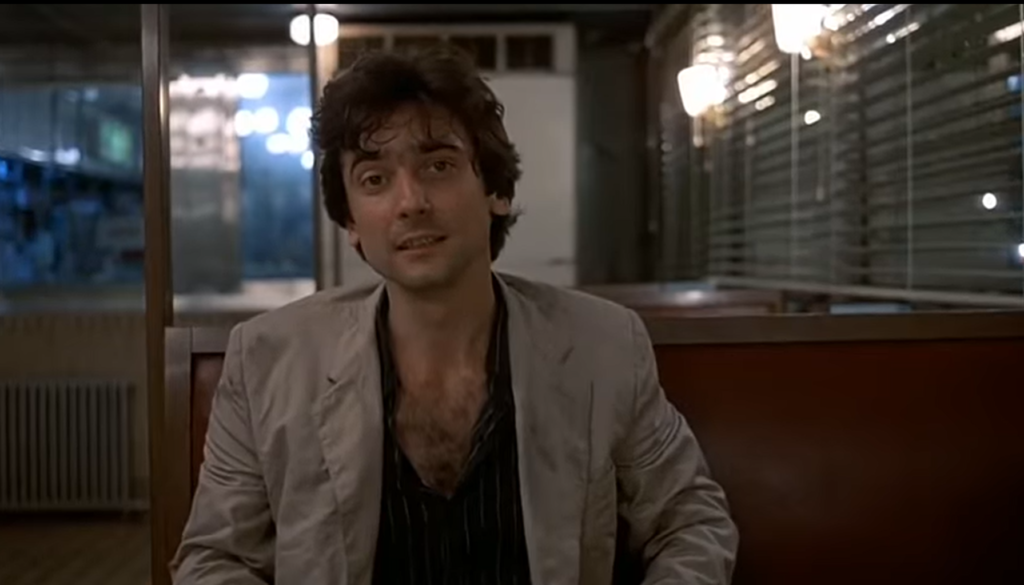
By the end of the film, Dunne learns that he should have stayed home instead of trying to take advantage of a stranger in need.
Redeeming Qualities and Moments:
- Rosanna Arquette as the sweet but troubled woman Dunne meets in a coffee shop
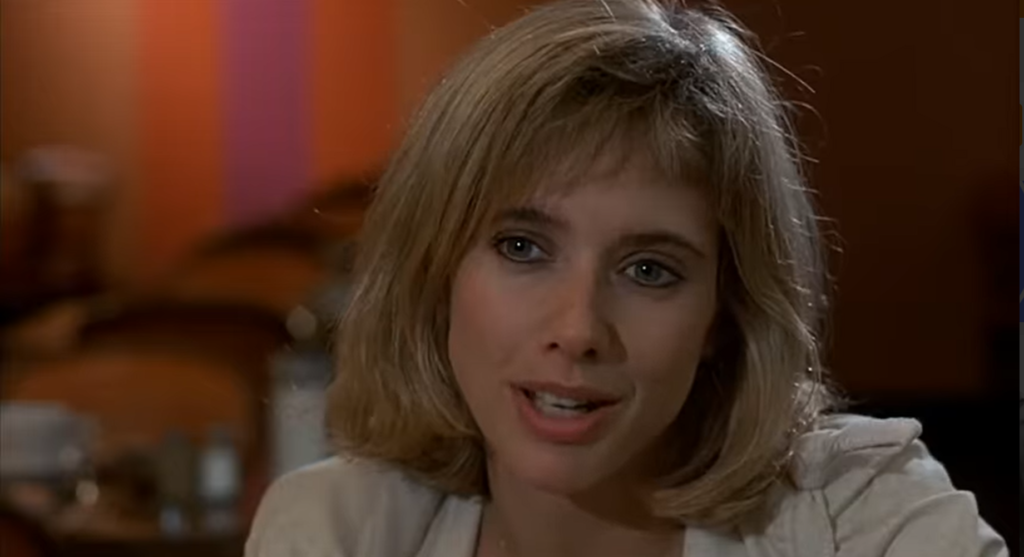
- Catherine O’Hara shouting out random numbers as Dunne tries in vain to memorize his friend’s phone number
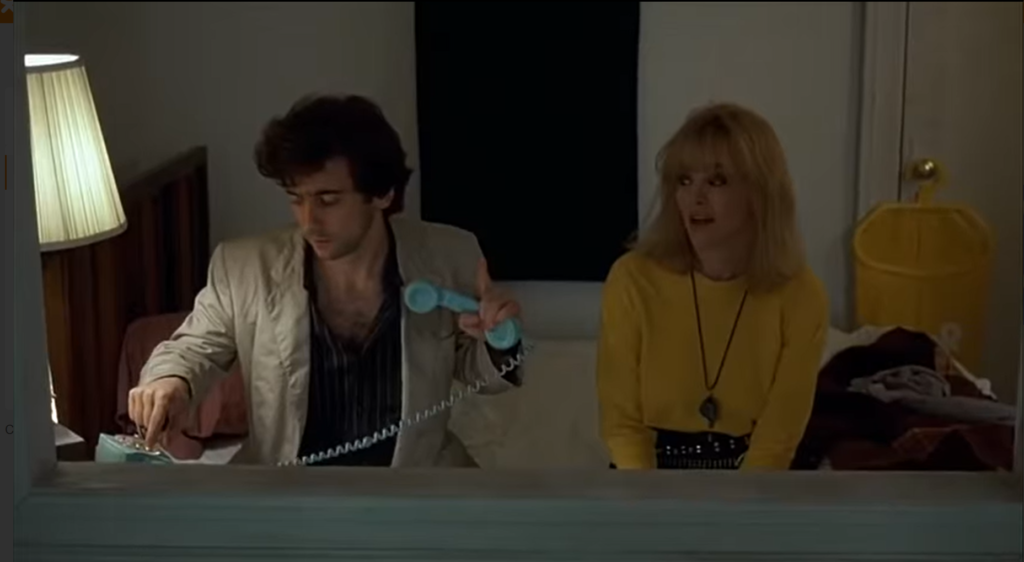
Must See?
Yes. This unusual film is guaranteed to hold your interest, and remains a unique entry in Scorsese’s oeuvre.
Categories
Links:
|
One thought on “After Hours (1985)”
A once-must, as a cult item. I’m not sure whether anyone has designated this as a cult film but it does seem to have that stamp on it.
‘AH’ is very much like Scorsese’s ‘King of Comedy’ to me – in that its nature as a black comedy may be off-putting to some. I seem to recall – when I saw it the first time – that I resisted it much in the way I resisted ‘King…’. But, in the case of the latter film, resistance gave way to embracing its unique quality. I don’t know that I would feel the same way about ‘AH’. I’m not sure that I would want to return to it a few times in order to extract more of its underbelly. But that doesn’t necessarily mean I think it’s an inferior film – I probably just feel a bit more drawn to ‘King…’s layers.
When I first moved to NYC (in 1977), I was in thick with theater people – who, in turn, were quite often in thick with (other) eccentric/bohemian types. So I would occasionally find myself in fringe situations (i.e. late-night clubbing) that prove this film to be not-all-that far-fetched. A number of the conversations in ‘AH’ certainly have the ring of familiarity to me. I would tend to be not as adventurous as some of my friends, so I would often later hear the details of even-more-bizarre tales than I was willing to experience first-hand. ‘AH’ may be an exaggeration in terms of the number of things happening to someone in NYC in one night…but it’s still very believable.
I don’t think I agree with the opinion that Dunne’s Candide-like character is a “worm”; I don’t feel he takes advantage of Arquette’s character at all. He may be a bit goofy and he may want to get laid but he appears to have a sense of propriety and proper awareness of others. His Paul is an observer – one who seems to be generally more content reading about emotional mayhem than engaging in it (i.e., he’s reading Henry Miller’s ‘Tropic of Cancer’ when Arquette first chats him up).
I do think the film is uneven in its performances. This is very tricky material and I found myself engaged with some of the cast more than others, in terms of how they got under the skin of their characters. I’m particularly impressed with Dunne, Heard and Arquette here. (Arquette is someone I don’t take to much at all, so I was surprised to see how nuanced her work is in this film. It would be easy to go the bimbo route with this role or to be too over-the-top. But Arquette handles it just right. I don’t, for example, imagine it’s easy to be saddled with a monologue about rape that flirts with being funny: “For six hours. To tell you the truth, I slept through most of it.”)
Surprisingly, I’m less impressed with Garr and O’Hara. These are two very gifted women with a genuine talent for comedy. But they are at their best when they have top-notch writing to work with. Here, though they both manage to periodically find ways to shine (i.e., O’Hara messing with Dunne’s head as he’s trying to memorize a phone number; Garr trying to cheer Dunne up by inappropriately choosing Joni Mitchell’s ‘Chelsea Morning’ as BGM), their parts as written don’t allow them enough to sink their teeth into.
Scorsese has referred to the script as ‘a Chinese puzzle’ and I concur. It’s intriguing watching all of the story’s elements bounce off each other in pinball fashion. ~all of which is heightened considerably by DP Michael Ballhaus as the tension escalates.
NOTES:
Late in the film, Dunne returns to Arquette’s loft and seems to see Fiorentino on the roof. She throws him her keys so he can let himself in. When inside, Dunne finds her quite tied-up and has to set her free. …Um…huh?!
The film has a welcome (and gay-friendly) smattering of gay characters on the periphery…all of which is handled matter-of-factly without over-statement. I esp. like the scene in Heard’s bar – where he and Dunne are having a serious conversation while, nearby, two leather men (the only other people in the bar) are making out.